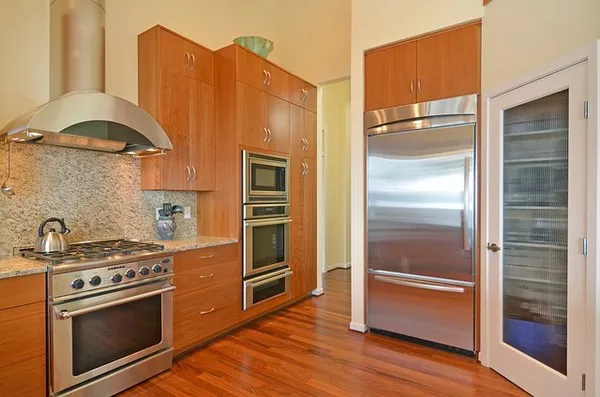In both residential and commercial settings, selecting the appropriate refrigeration system is crucial for efficiency, cost-effectiveness, and environmental impact. With a variety of options available, understanding your specific needs and the features of different systems is essential to making an informed decision. This guide aims to explore the factors influencing your choice and provide a structured approach to selecting the ideal refrigeration system.
Understanding Refrigeration Systems
Refrigeration systems are designed to cool and preserve perishable items by removing heat from an enclosed space. They are essential in a wide range of applications, from storing food and pharmaceuticals to maintaining critical temperatures in industrial processes.
Factors Influencing Your Choice
1. Application Requirements
The first step in choosing a refrigeration system is to define your specific application requirements:
Temperature Requirements: Determine the required temperature range (e.g., freezing, chilling, or maintaining ambient temperatures).
Capacity Needs: Calculate the volume of goods to be refrigerated or frozen.
Environmental Conditions: Consider factors such as ambient temperature and humidity levels in the installation location.
2. Energy Efficiency
Energy efficiency is a significant consideration due to its impact on operating costs and environmental footprint. Look for systems that carry certifications like ENERGY STAR® and consider features such as:
Compressor Efficiency: Scroll compressors are known for their energy efficiency compared to reciprocating compressors.
Insulation Quality: Well-insulated systems reduce heat transfer and improve efficiency.
Variable Speed Drives: These optimize energy consumption by adjusting compressor speeds based on cooling demand.
3. Type of Refrigeration System
Several types of refrigeration systems exist, each suited to different applications:
Vapor Compression Systems: Common in most household refrigerators and commercial freezers.
Absorption Systems: Utilize heat instead of electricity, suitable for remote locations or areas with limited electrical supply.
Thermoelectric Systems: Use the Peltier effect for small-scale cooling needs but are less efficient for larger applications.
Evaporative Cooling Systems: Suitable for dry climates where evaporative cooling can be effective and energy-efficient.
4. Space and Installation Considerations
Consider the physical space available for installation and the system’s installation requirements:
Footprint: Choose a system that fits within the available space without obstructing workflow or accessibility.
Ventilation: Ensure adequate ventilation to dissipate heat emitted by the system and maintain optimal operating conditions.
Noise Levels: Particularly important in residential settings, choose systems with lower noise emissions for comfort.
5. Maintenance and Serviceability
Regular maintenance is crucial for the longevity and efficiency of refrigeration systems:
Ease of Maintenance: Opt for systems with accessible components and straightforward maintenance requirements.
Service Availability: Consider the availability of trained technicians and spare parts locally.
6. Cost Considerations
Balancing upfront costs with long-term savings and operational efficiency is essential:
Initial Cost: Compare purchase prices, considering installation costs and any additional infrastructure requirements.
Operating Costs: Factor in energy consumption, maintenance, and potential downtime costs.
See Also AMMONIA REFRIGERATION: PRINCIPLES, APPLICATIONS & BENEFITS
Choosing the Right System
Step 1: Assessing Requirements
Begin by conducting a thorough assessment of your refrigeration needs:
- Temperature Range: Define whether your application requires freezing, chilling, or ambient cooling.
- Capacity: Calculate the volume of goods to be stored or processed.
- Environmental Factors: Consider ambient conditions that may affect system performance.
Step 2: Evaluating System Types
Based on your requirements, evaluate the suitability of different refrigeration system types:
- Vapor Compression: Suitable for most applications, offering reliability and efficiency.
- Absorption: Ideal for locations with limited electricity access but may have higher initial costs.
- Evaporative Cooling: Effective in dry climates but less suitable for precise temperature control.
Step 3: Energy Efficiency
Prioritize energy-efficient systems to reduce operational costs and environmental impact:
Energy Ratings: Look for systems with high ENERGY STAR® ratings or other efficiency certifications.
Compressor Type: Consider scroll compressors for improved energy efficiency compared to reciprocating compressors.
Step 4: Installation and Maintenance
Ensure the chosen system can be installed and maintained effectively within your space and operational constraints:
- Space Requirements: Verify that the system fits within available space without obstructing workflows.
- Maintenance Needs: Assess maintenance requirements and ensure they align with available resources.
Step 5: Budget and Long-Term Costs
Evaluate the total cost of ownership, considering both upfront costs and long-term savings:
- Total Cost of Ownership: Compare initial purchase costs with expected energy savings and maintenance expenses.
- ROI Analysis: Conduct a return on investment analysis to assess the economic benefits of each system option.
Conclusion
Choosing the right refrigeration system involves a comprehensive evaluation of your specific needs, energy efficiency considerations, installation requirements, and long-term costs. By understanding these factors and following a structured decision-making process, you can select a system that not only meets your immediate refrigeration needs but also enhances efficiency, reduces operating costs, and supports sustainability goals. Whether for residential, commercial, or industrial applications, an informed choice ensures optimal performance and reliability from your refrigeration system.

